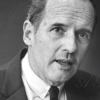Carroll Quigley

Carroll Quigley
Carroll Quigleywas an American historian and theorist of the evolution of civilizations. He is noted for his teaching work as a professor at Georgetown University, for his academic publications, and for his research on the Round Table movement...
NationalityAmerican
ProfessionWriter
Date of Birth9 November 1910
CountryUnited States of America
tears events easy
It is not easy to tear any event out of the context of the universe in which it occurred without detaching from it some factor that influenced it.
historical may fields
I came into history from a primary concern with mathematics and science. This has been a tremendous help to me as a person and as a historian, although it must be admitted it has served to make my historical interpretations less conventional than may be acceptable of many of my colleagues in the field.
intimate-relationships community groups
A community is made up of intimate relationships among diversified types of individuals--a kinship group, a local group, a neighborhood, a village, a large family.
failure west spain
The failure of Christianity in the areas west from Sicily was even greater, and was increased by the spread of Arab outlooks and influence to that area, and especially to Spain.
government self differences
The difference between a stable society and an unstable one is that the restraints in an unstable one are external. In a stable society government ultimately becomes unnecessary; the restraints on people's actions are internal, they're self-disciplined...
today realizing scientist
Even today few scientists and perhaps even fewer nonscientists realize that science is a method and nothing else.
organization effort important
everything is too important ever to be entrusted to professional experts, because every organization of such professionals and every established social organization becomes a vested-interest institution more concerned with its efforts to maintain itself or advance its own interests than to achieve the purpose that society expects it to achieve.
party two profound
Instead, the two parties should be almost identical, so that the American people can ‘throw the rascals out’ at any election without leading to any profound or extensive shifts in policy.
hunting fishing two
We see that there are two different kinds of...societies: (a) parasitic societies and (b) producing societies. The former are those which live from hunting, fishing, or merely gleaning. By their economic activities they do not increase, but rather decrease, the amount of wealth in the world. The second kind of societies, producing societies, live by agricultural and pastoral activities. By these activities they seek to increase the amount of wealth in the world.
war men compassion
The hope for the twentieth century rests on recognition that war and depression are man-made, and needless. They can be avoided in the future by turning from the nineteenth-century characteristics just mentioned (materialism, selfishness, false values, hypocrisy, and secret vices) and going back to other characteristics that our Western Society has always regarded as virtues: generosity, compassion, cooperation, rationality, and foresight, and finding a increased role in human life for love, spirituality, charity, and self discipline.
believe nwo world-government
The Council on Foreign Relations is the American branch of a society which originated in England ... [and] ... believes national boundaries should be obliterated and one-world rule established.
christian successful historical
Islam, the third in historical sequence of the ethical monotheistic religions of the Near East, was very successful in establishing its monotheism, but had only very moderate success in spreading its version of Jewish and Christian ethics to the Arabs.
country government banking
Each central banksought to dominate its government by its ability to control Treasury loans, to manipulate foreign exchanges, to influence the level of economic activity in the country, and to influence cooperative politicians by subsequent economic rewards in the business world.
believe answers finals
No scientist ever believes that he has the final answer or the ultimate truth on anything.